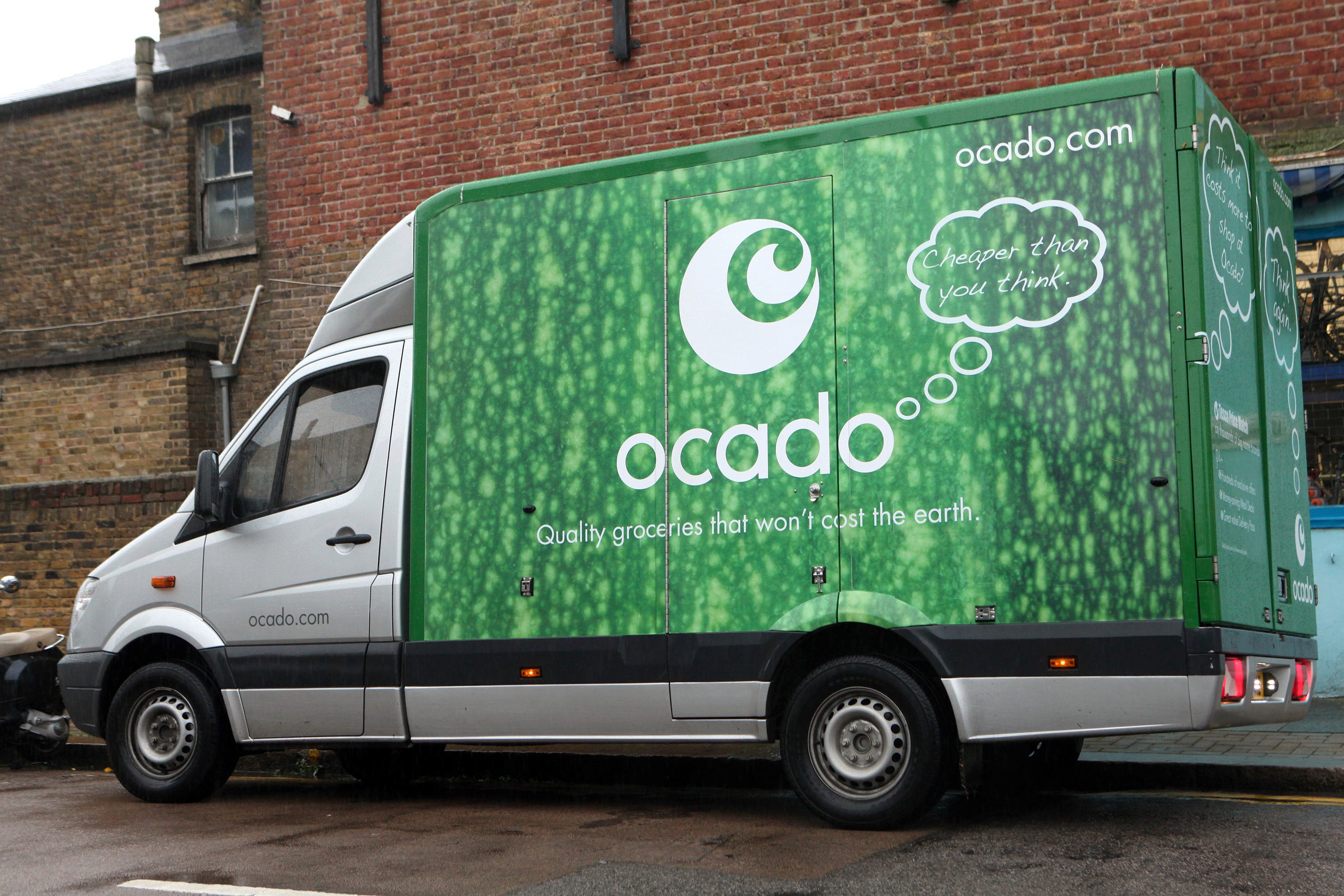Ocado sees ‘pathway’ to returning retail arm to profit amid pressure from M&S
Ocado Group reported widening pre-tax losses of £289.5m for the six months to May 28, against losses of £211.3m a year ago.

Your support helps us to tell the story
From reproductive rights to climate change to Big Tech, The Independent is on the ground when the story is developing. Whether it's investigating the financials of Elon Musk's pro-Trump PAC or producing our latest documentary, 'The A Word', which shines a light on the American women fighting for reproductive rights, we know how important it is to parse out the facts from the messaging.
At such a critical moment in US history, we need reporters on the ground. Your donation allows us to keep sending journalists to speak to both sides of the story.
The Independent is trusted by Americans across the entire political spectrum. And unlike many other quality news outlets, we choose not to lock Americans out of our reporting and analysis with paywalls. We believe quality journalism should be available to everyone, paid for by those who can afford it.
Your support makes all the difference.Shares in online grocer Ocado have surged higher after the group swung to an underlying profit and said its retail arm is on track to post annual earnings amid mounting pressure from its joint venture partner Marks & Spencer.
The group saw shares rise more than 13% in morning trading on Tuesday as the wider firm clawed its way out of the red and said the Ocado Retail business – run in partnership with M&S – has returned to an underlying profit in recent months.
Ocado Retail posted underlying losses of £2.5 million overall in the six months to May 28, though Ocado said it delivered underlying earnings in each month of the second quarter.
It said there is a “clear pathway” to drive underlying earnings at the division for the full year.
The figures come after M&S chairman Archie Norman told shareholders earlier this month that he was “not happy” with Ocado Retail’s performance and that there was “work to do” with the joint venture.
Ocado boss Tim Steiner said Mr Norman’s comments reflected ambitions for the joint venture back in 2019, admitting that “from that perspective, it is disappointing”.
“It’s not where we wanted it to be four years ago,” he said.
The retail business failed to take on as many new customers as it hoped in recent years due to the pandemic, but Mr Steiner said the division was “making progress”.
He confirmed that Ocado and M&S are holding talks over the final payment from M&S for its 50% stake in Ocado Retail, which is contingent on the joint venture’s performance against an undisclosed target in the year to November 2023.
Ocado’s shares were also recently sent soaring, by as much as 47% on June 22, due to reported speculation of bid interest, with Amazon tipped among possible suitors.
Mr Steiner declined to comment, saying “speculation is speculation, I have nothing to say”.
But he said if an offer is made to take the group private “we have a responsibility to take it seriously”.
He added that a takeover is “not something we’re pursuing”.
The group’s half-year results showed retail revenues rose by 5% to £1.2 billion as average price inflation of 8.4% was offset by smaller basket sizes – down 6.3% at 45 items – and fewer orders per week as shoppers reduced their spending in the face of soaring cost pressures.
It insisted its increase in average selling prices is below wider UK grocery inflation, with latest industry figures from Kantar on Tuesday showing it easing back to 14.9% in the most recent month.
Ocado said it has begun to see the declines in basket sizes stabilise at 44 items over the second quarter.
Grocers have worked enormously hard as a sector to keep price rises to a minimum
Overall across the group, which also includes its international logistics and robotic warehouse operation, Ocado reported widening pre-tax losses of £289.5 million in the first half, against losses of £211.3 million a year ago, including one-off costs of closing its Hatfield warehouse.
It said on an underlying earning basis it swung to a £16.6 million profit against losses of £13.6 million a year earlier.
Grocery business figures are in the spotlight amid concerns of profiteering and that they are not passing on wholesale cost reductions fast enough, with the sector being looked at by the Competition and Markets Authority.
Mr Steiner defended the sector, saying grocers “have worked enormously hard as a sector to keep price rises to a minimum”.
He said: “Calling it profiteering is not sensible.
“As a sector, I think they do an outstanding job.”